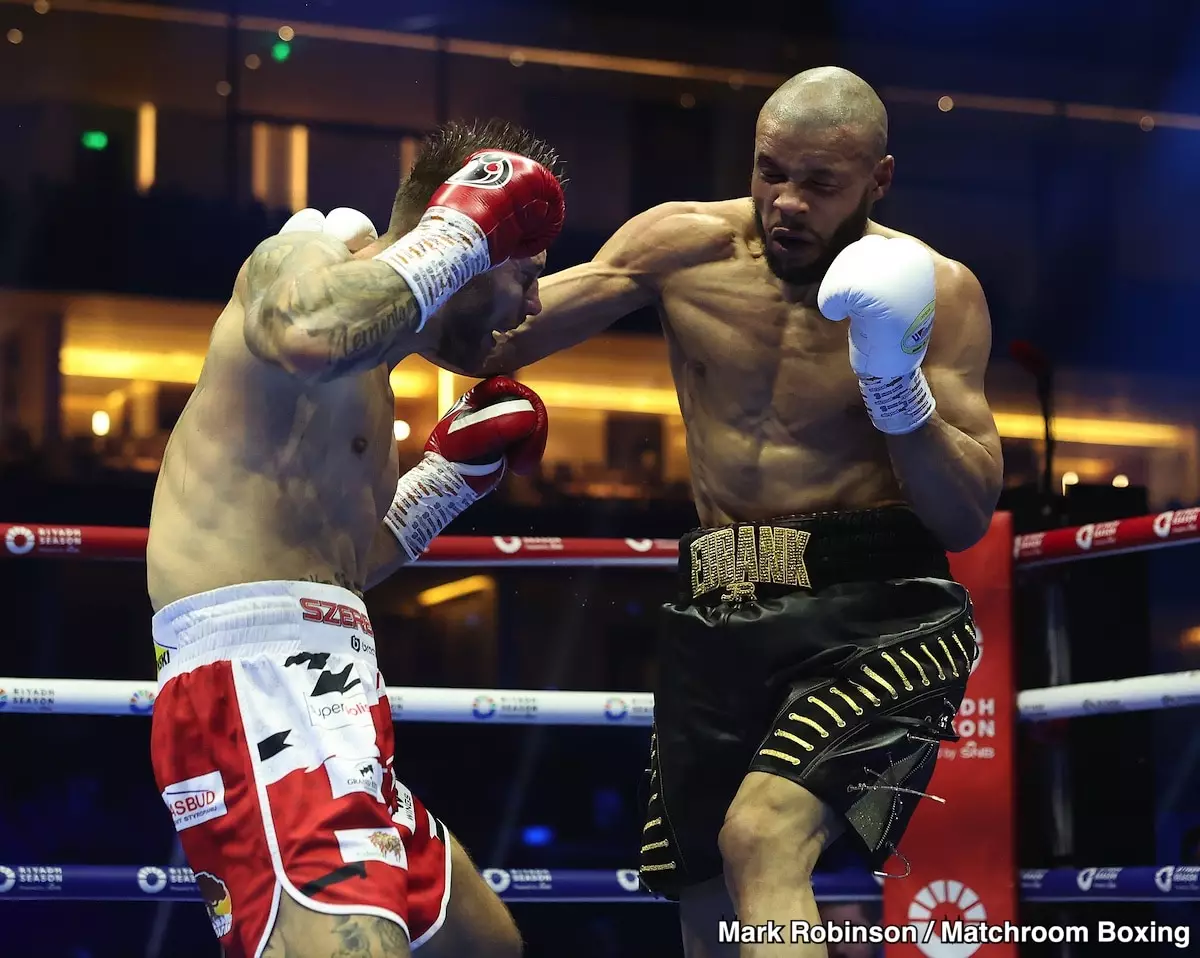Chris Eubank Jr., a seasoned fighter in the sport of boxing, has sparked debate among fans and analysts alike regarding his status and intentions in the ring. Unlike his father, the legendary Chris Eubank Sr., who was renowned for his grit and pursuit of world titles, Eubank Jr.’s focus appears to be less about accolades and more centered around financial gain and celebrity status. This shift in priorities has led to criticisms from various quarters, most notably Carl Froch, a former super middleweight champion, who has voiced his concerns quite vocally.
Froch argues that Eubank Jr. does not belong at the world level of boxing, suggesting that his motives lie outside the traditional realms of sport which are built on the foundations of competition and the pursuit of greatness. Instead, Eubank Jr. seems to enjoy the perks of fame, engaging in celebrity-like behavior, including poker games and public appearances, rather than honing his skills against elite competition.
Eubank Jr.’s career statistics—a record of 35 wins, three losses, and 25 knockouts—suggest a competent fighter; yet, many argue that such statistics are misleading when juxtaposed against his accomplishment in terms of holding world titles. His only attempt at a major title ended in disappointment against George Groves, where he lost decisively. At the age of 35, Eubank appears unlikely to shift gears toward a world title pursuit, having fought primarily at domestic levels throughout his career.
Instead, he seems poised to capitalize on lucrative bouts against well-known fighters, where the stakes are not necessarily about sporting prestige but rather about cash flow. Speculated matchups with boxing stars like Conor Benn, Canelo Alvarez, and Billy Joe Saunders promise significant monetary rewards, capturing public attention more for their names than the competitive nature of the fights themselves.
Despite Eubank Jr.’s apparent lack of interest in the middleweight crown, his legacy as a “celebrity fighter” allows him to maintain a following in the UK. His ancestral connection to Eubank Sr. ensures that audiences remain eager to watch him fight, regardless of whether he’s competing against world-class opponents or less experienced boxers. Fans are drawn to the spectacle rather than the sportsmanship, a fact that Froch highlights as he critiques Eubank Jr.’s approach.
Froch emphasizes that although Eubank Jr. can secure victories over lower-tier fighters—as evidenced in his recent knockout win against Kamil Szeremeta—this does not translate to being competitive at a world-class level. It raises questions about the integrity of boxing as a sport when fame factors into a boxer’s participation and motivations.
Looking ahead, the potential for matchups with notable names like Benn excites the boxing community, not merely for the fights themselves but for the narratives surrounding these bouts. The historical context of Eubank Sr. and Nigel Benn adds a layer of intrigue, creating a “legacy fight” buzz that transcends the current capabilities of the fighters involved. However, there remains a deep-seated concern about the implications for Eubank Jr.’s legacy if he continues to eschew the ranks of meaningful competition in favor of easy money.
The essential question looms: Will Eubank Jr. be remembered as a champion or merely as a shrewd businessman who played the roles necessary to cash in without actualizing his potential? Froch’s criticisms underscore that while financial success is an undeniable aspect of modern boxing, it should not be prioritized over the experience of competition and the pursuit of excellence.
Chris Eubank Jr.’s journey illustrates a fascinating crossroads in boxing, where celebrity and sport often converge. As the landscape of this ancient prizefighting discipline evolves, Eubank Jr. may encapsulate the ambitions of contemporary fighters whose objectives may not echo the traditional aspirations of their predecessors. The narrative of boxing continues to shift, and Eubank Jr. stands as a testament to this transformative era.

